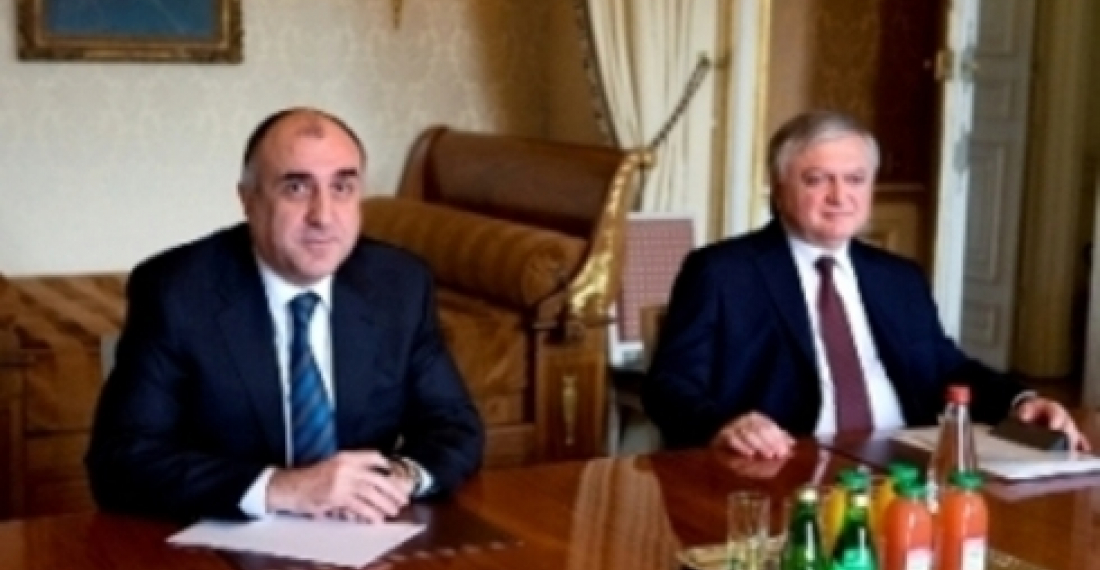The long and painful process of trying to achieve a breakthrough in the negotiations over the Nagorno-Karabakh conflict continued over the weekend with a meeting in Vienna between the Foreign Ministers of Armenia and Azerbaijan.
A statement on the OSCE web site says that the Co-Chairs of the OSCE Minsk Group (Ambassadors Igor Popov of the Russian Federation, Jacques Faure of France, and Ian Kelly of the United States of America) and the Personal Representative of the OSCE Chairperson-in-Office, Ambassador Andrzej Kasprzyk, conducted a series of meetings in June and July to further develop ideas for a peaceful resolution of the Nagorno-Karabakh conflict.
They met with Azerbaijani Foreign Minister Elmar Mammadyarov in London on June 6 and Armenian Foreign Minister Edward Nalbandian in Paris on June 28. The Co-Chairs and the Ministers continued ongoing discussions on the substance of the peace process, focusing on means to reduce tensions between the sides and create conditions for a meeting at the highest levels later this year.
In a joint meeting in Vienna with the Co-Chairs on July 12, the two Foreign Ministers reiterated their commitment to these goals, and discussed plans for further talks in the months ahead.
On July 13, the Co-Chairs briefed OSCE ambassadors of the Minsk Group in Vienna. The Co-Chairs will coordinate closely with the sides to develop next steps.
In the meantime, a spokesperson for the Azerbaijani Foreign Ministry,Elman Abdullayev told APA news Agency that "Azerbaijan's principled position was expressed once more by the Foreign Minister at the meeting with the co-chairs and the meeting held with the participation of Edward Nalbandian. The position is that to move peace process from the "dead point", Armenian armed forces must leave Azerbaijan's occupied territories". Abdullayev said Elmar Mammadyarov reiterated that the status-quo is inadmissible.
There was no immediate comment on the meeting from the Armenian side.
source: commonspace.eu with osce.org and APA.
photo: The Foreign Ministers of Azerbaijan and Armenia, Elmar Mammadyarov and Edward Nalbandian (archive picture).







